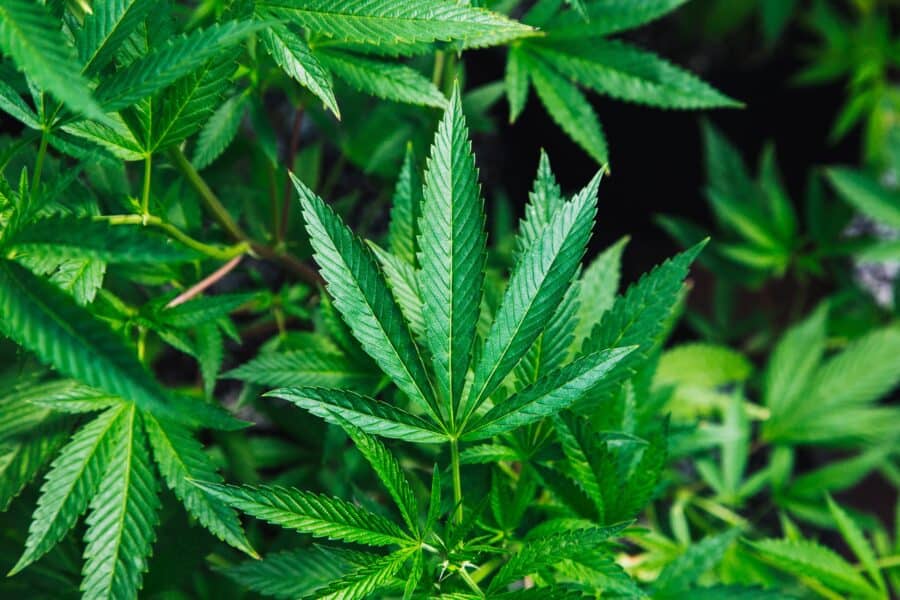What are the health benefits of CBD oil?
The mass influx of CBD-related information injected into the public’s consciousness has blurred the lines between what’s factually correct and factually incorrect, especially when it comes to CBD’s supposed health benefits.
Unfortunately, many companies and brands out there cherry-pick studies to suit their own sales and marketing narrative. These studies are often too old, inconclusive, or irrelevant. We’ve even seen some studies used that aren’t even applicable to what’s being said.
This is something we at Essentia Pura want to rectify. We believe in the strength of reliable studies on what high-quality CBD oil may do for you. We don’t believe in deceiving you with bogus, unsubstantiated claims.
topica
With this in mind, let’s dig into what the studies are saying about CBD oil.
What can CBD oil be used for?
While we’re not at liberty to recommend any of CBD oil’s uses for health and wellness symptoms you may be facing, we can look at the studies surrounding its potential health benefits.
Anecdotally, many users around the world claim CBD oil has helped them alleviate symptoms of pain (short-term, chronic, or otherwise), inflammation, anxiety, and insomnia, improve their gut health, as well as feeling overall health and wellness benefits.
Anecdotal evidence, unfortunately, doesn’t hold much water here. Scientifically-backed studies and research, however, does.
Let’s look at what we know so far. Note: A detailed summary of CBD oil for pain and CBD oil for skin care can be found in the sections below.

CBD interacts with your endocannabinoid system (ECS) to kickstart the supposed physiological benefits
CBD is a clever cannabinoid. It interacts with what’s known as your endocannabinoid system (ECS), a naturally occurring biological system in all mammals composed of cannabinoid receptors, endocannabinoids, and enzymes.
Read more: What are Endocannabinoids
This trio of components helps regulate your body’s internal core functionality to bring your body to a state of physiological equilibrium — or, rather, homeostasis.
The primary functions they regulate include but are not limited to:
- Mood
- Sleep
- Appetite
- Stress
- Inflammation
- Reproductive functionality
- Cognitive thinking and processes
Your cannabinoid receptors are a very important component of your ECS. They’re found in many parts of the body and are separated into two types: cannabinoid receptor type 1 (CB1) and cannabinoid receptor type 2 (CB2).
The former is primarily located in many regions of the brain and central nervous system (CNS), whilst the latter is primarily located in the spleen, liver & bone cells, and throughout your immune system.
Many people believe CBD acts the same way as tetrahydrocannabinol (THC) insofar as binding directly to your cannabinoid receptors to produce desired effects (getting you high or stoned in THC’s case). This isn’t strictly true.
You see, CBD interacts with your entire ECS in a much different way. It doesn’t bind to either receptor at all. Instead, it targets other receptor sites around the body, namely vanilloid receptors (TRPV1) and serotonin receptors (5-HT1A).
This, alone, is thought to kickstart CBD’s benefits within your body.
CBD oil may alleviate symptoms of anxiety and anxiety-related disorders
Anxiety is the most common mental health problem in Europe. Approximately 25 million people across 28 EU states live with an anxiety disorder. This is a huge number of people (approximately 5.4% of the EU population) and many of them face the debilitating and life-altering symptoms associated with it.
Fortunately, there are numerous compelling studies out there suggesting CBD oil may have anti-anxiety qualities.
In 2015, researchers studied CBD oil for anxiety on rodent test subjects. They discovered it reduced anxiety and stress-related symptoms, particularly behavioural ones. They also realised a decrease in heart rate after consumption.
CBD has proven anti-epileptic qualities
One of the most remarkable discoveries was (and still is) CBD’s effectiveness in combating two rare forms of epilepsy: Lennox-Grasaut syndrome and Dravet Syndrome.
In 2018, GW Pharmaceuticals released a purely CBD-based drug called Epidiolex, one of the first cannabis-based drugs to be given the FDA stamp of approval in the United States.
The clinical studies leading up to the release was fascinating to follow. Researchers discovered the administration of Epidiolex significantly reduced seizure frequency and intensity in both types of epilepsy.
In 2019, the European Medicines Agency (EMA) gave Epidiolex marketing approval. Further clinical trials are now underway to understand its effectiveness against anxiety, Parkinson’s disease, and psoriatic arthritis.
The benefits of CBD oil for pain relief
At some point or another, everyone walking the earth experiences pain. It’s just a simple fact of life. Some experience a large number of short-term pain symptoms, whilst others experience long-term chronic, oftentimes debilitating pain.
Thankfully, there are some studies on CBD oil for pain and they’re extremely promising.
CBD oil may help with arthritic pain
Across Europe, approximately 40 million people suffer from arthritis. This is a huge number of people — nearly the same number of people living in Poland.
Luckily, CBD may have some effect on arthritis and its symptoms.
In 2017, researchers injected rodent test subjects with 3mg of sodium monoiodoacetate to induce osteoarthritis symptoms. They then applied localised CBD treatment (100-300 micrograms) to the affected area and discovered reduced inflammation and pain, as well as decreased later-stage nerve damage.
This research isn’t a clinical trial, however. No humans were tested on.
CBD oil has the potential to alleviate multiple sclerosis (MS) induced muscle spasms
One of the biggest breakthroughs for cannabis-derived medicinal drugs happened back in 2010. GW Pharmaceuticals, a prolific pharmaceutical company based in the UK, released Nabiximols (Sativex), an oral spray containing both CBD and THC for symptoms of multiple sclerosis.
Multiple clinical trials leading up to its release were (and still are) fascinating. Adults with MS reported short-term alleviation of muscle spasticity (muscle stiffness and tightness) after Sativex use.
Sativex isn’t perfect, however. Italian researchers collected data from 30 MS centres across the country. Out of 1597 patients using Sativex, 631 (39.5%) discontinued treatment after four or six weeks of treatment. The two primary reasons for treatment discontinuation were lack of effectiveness (23.2%) and adverse side effects of CBD and THC (16.3%).

The benefits of CBD oil for your skin
Similar to pain, everyone on earth has experienced skin complaints. It’s a perfectly normal, natural part of life. However, there are times when skin complaints can be psychologically troubling and physically painful, especially when they’re long-term and chronic.
There is some good news on the horizon, though. Studies into CBD for skincare are very promising (but quite limited).
CBD may reduce signs of acne
CBD topicals and skincare products, in general, aren’t designed to penetrate the bloodstream. They’re designed to positively affect surface area skin issues, as well as potentially soothe aching muscles and joints.
CBD is known to actively affect sebocytes, which are cells found in sebaceous glands. These glands produce sebum, an oily, waxy substance that helps your skin feel soothed and moisturised. If you produce too much sebum, it may cause acne.
Research suggests CBD can absorb into your sebaceous glands via hair follicles resulting in less sebum production and potentially less acne.
CBD may also absorb below the skin’s surface and interact with nearby cannabinoid receptors in your sebaceous tissue and nerve fibres. A 2005 study believes this interaction may cause anti-inflammatory benefits.


